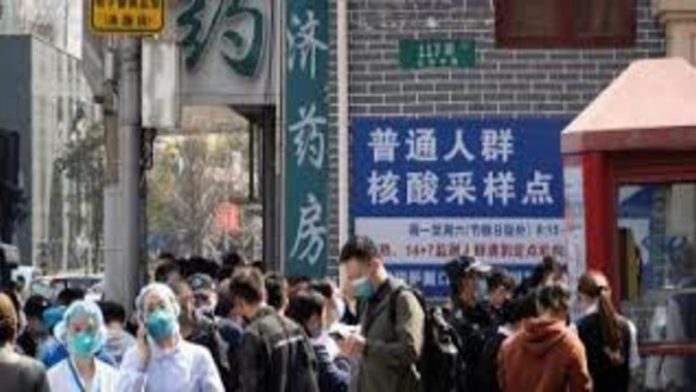China’s high-tech Shenzhen metropolis, with a population of over 17 million, was the latest to close in an effort to manage the COVID-19 epidemic, as the authorities battled to contain the virus’s deadliest outbreak in two years.
Shenzhen will close all neighbourhoods and villages and halt bus and subway service from Monday through Sunday in response to the newest COVID-19 outbreak, the state-run China Daily said Sunday. Since late February, Shenzhen has been facing an Omicron spike. Next week, the city will conduct three rounds of COVID-19 testing.
City officials advised citizens to work from home and go out only to purchase daily needs in a statement.
After surpassing 1,000 new cases for two consecutive days, China’s National Health Commission stated on Sunday that new domestically transmitted cases had risen to more than 3,100. This is the highest level in more than two years.
According to the Hong Kong-based South China Morning Post, all outgoing travellers from Shenzhen must present negative nucleic acid test results obtained within the preceding 24 hours.
China is on the verge of its worst COVID-19 problem since Wuhan, the Post said. The coronavirus originally emerged in Wuhan in December 2019 and quickly spread to practically every country, killing almost 6 million people. It is interesting that cases in China are increasing at a time when the majority of nations are opening up in response to a decline in instances.
China’s aim of zero COVID-19 cases has come under growing strain in recent weeks, as major cities, notably Shanghai and Beijing, have seen a new wave of instances. It occurred as 16 provinces and four megacities – Beijing, Tianjin, Shanghai, and Chongqing – reported new coronavirus cases.
According to the Post storey, some local health officials have ascribed the spike to the Omicron version, which is more transmissible but produces less severe symptoms than the original COVID-19 virus.
Sun Chunlan, China’s Vice Premier, encouraged areas facing major epidemic breakouts on Saturday to quickly eliminate COVID-19 infections among the general population.
China has included antigen detection as a COVID-19 testing option for the general population as part of its COVID-19 response, in an attempt to increase the early identification of COVID-19 cases.
Shanghai residents have been instructed not to leave, and those who do must have a certificate for negative nucleic acid test results obtained 48 hours before to departure, according to the state-run Xinhua news agency.
The significant increase in cases occurred following a top Chinese official’s claim on March 4 that China is one of the best performers in containing the COVID-19 pandemic, praising the country’s stringent zero-case policy of restricting national and international travel and enforcing proactive local lockdowns wherever the virus surfaced.
China’s dynamic zero-COVID strategy has proven successful in the country’s setting, according to Zhang Yesui, a spokeswoman for the National People’s Congress, the country’s Parliament.
Meanwhile, authorities in Hong Kong verified 27,647 additional Covid-19 cases, including 11,858 positive cases, according to the Hong Kong-based South China Morning Post on Sunday.
The former British colony also recorded 87 fatalities from COVID, bringing the total to 3,729, the paper said.




